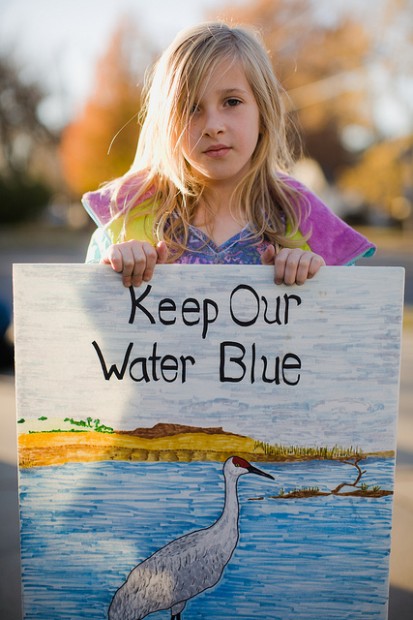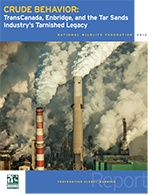We have much more to do and your continued support is needed now more than ever.
Pipeline Companies’ Crude Behavior Exposed
If the American dream can be reduced to a single image, it is of the homestead — a place earned through long days and late nights, hard work, planning, and saving. It represents not only a dream realized, but an investment in your family and future, and a place that is rightfully all your own.

Crude Behavior: TransCanada, Enbridge, and the Tar Sands Industry’s Tarnished Legacy, a new report from NWF, details the recent history of those companies, including underhanded legal campaigns against landowners, a systematic disregard for the rights of Native American tribes, and negligent behavior that has led to significant tar sands spills in the US and Canada. As the industry plans to build thousands of miles of new or re-purposed tar sands pipelines across the country, the public and government officials need to learn what it actually means to invite in these neighbors. As the report makes clear, you shouldn’t unroll the welcome mat.
In the Great Plains, TransCanada (of Keystone XL infamy) has mounted a widespread misinformation assault, threatening lawsuits when farmers refuse to sign over their land to the company. In Texas, landowners and journalists have been threatened with arrest for “trespassing” as TransCanada bulldozes its way to the Gulf coast. In New England, tar sands companies continue to insist, against all the evidence, that they have no plans to bring their dirty fuel through Vermont, New Hampshire and Maine — while simultaneously sponsoring tar sands spill cleanup workshops. And in the Midwest, Enbridge Inc. is plowing ahead with a massive expansion plan despite the lingering effects of the biggest inland oil spill in US history, the 2010 Kalamazoo River disaster.

As Jeff Insko — a Michigander who has been fighting back against these companies — puts it: “We’ve experienced first-hand the enormous gulf between Enbridge’s ‘good neighbor’ rhetoric and their callous treatment of landowners.”
Whether by looking for back-room deals in Washington, DC or taking ranchers to court, TransCanada, Enbridge and the other players have rewritten the book on how to do bad business in pursuit of profits. NWF has already detailed how tar sands is a terrible bet for wildlife, our climate, the American economy and public health, and Crude Behavior is another chapter in the sordid story of this industry. You can help stop the abuse: make sure to take action at the link below and visit NWF.org/tarsands for more information.
![]() Speak up for people and wildlife! Tell the White House to say NO to Keystone XL and other tar sands pipelines.
Speak up for people and wildlife! Tell the White House to say NO to Keystone XL and other tar sands pipelines.




















